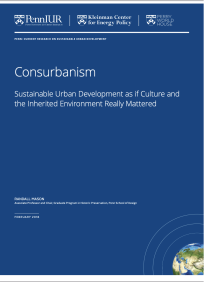Key Message
To achieve sustainable urban development that truly values cultural and environmental heritage, it is essential to adopt a consurbanism approach. This involves embedding conservation in urban planning processes, recognizing the multifaceted values of heritage, and balancing growth with cultural and ecological preservation. Policymakers and urban planners must move beyond the narrow focus on economic maximization and instead embrace a holistic perspective that includes cultural and social dimensions. By fostering public-private partnerships, engaging with local communities, and promoting inclusive governance, we can create urban environments that are resilient, equitable, and culturally rich. This integrated approach not only enhances the quality of urban life but also ensures that development is sustainable for future generations


